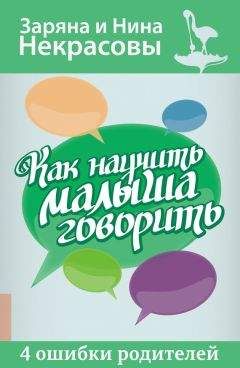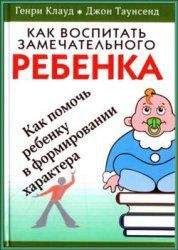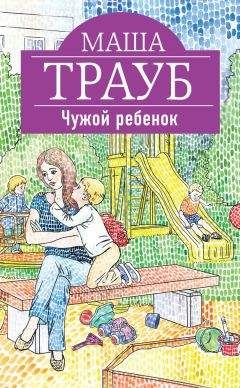Leo Frankowski - CONRADS QUEST FOR RUBBER
We left to talk to our knights and squires, but much later we were all sitting around the same table again, quietly drinking.
In the morning we said a special Mass for the Dead, recited our Army Oath, and then we went back to our duties.
We steamed back up the mighty river, and by luck one of the lookouts spotted the life ring that Kiejstut had attached to the anchor cable. An hour's hard labor got us back our anchor.
We anchored upstream of a wooded, uninhabited island, on the theory that if another tidal bore happened, the island would break its force. We started assembling riverboats again, while others went to the island and began chopping firewood, which was needed both to ensure that the ship got home and as fuel for our four remaining riverboats.
The disaster had cost us, in dead, missing, and seriously injured, almost two complete platoons of explorers, including two platoon leaders. Since we were also missing two boats, well, with some reshuffling of personnel, it worked out.
The baron was shorthanded by twenty-one men, and asked if we could help out, but Captain Odon said there were still thirty-four men on the sick list, and many of them would be capable of doing at least some work within a few days.
I could see that the baron wanted to say that taking care of the injured took up a lot of badly needed manpower, but I think he was still a little afraid of our captain, and kept silent.
A tall, straight tree on the west end of the island had been stripped of its branches. The base had been girdled so they couldn't grow back, and a big flag was nailed at the top, as a marker. It was agreed that the ship and the riverboats would meet back at this place in exactly three hundred sixty-five days.
It was decided that the captain would go with Father John and a platoon of men, and try to get to the headwaters of the Amazon, where there was supposed to be a gold-rich civilization.
I was to take my boat and search out the north side of the river, and Lezek was to take the south. Kiejstut and Fritz were to accompany the captain farther west and would be assigned to search and map some tributary.
We were to be friendly to the natives, to show them our products and see what they might have that would be of interest to us, but mostly we were to search for a rubber tree. This was described as having a white, sticky sap that, when dried, was stretchy, like raw pigskin.
Those men who had been logging on the island were apprehensive about finding a single kind of tree in that strange forest.
"God was feeling very creative when He made this place!" Fritz said. His hands were covered by a rash that he picked up on the island. "We must have cut down three or four hundred trees on that island, and I don't think that any two of them were of the same species. I tell you that every single tree, every single plant, was different from every other plant around it! These are not like the forests back home, where there might be only five kinds of trees and six kinds of bushes in ten miles of forest. We might have to search for years, and cut into thousands of trees before we find this rubber tree. And when we do, there won't be very many of them."
There was no way to answer that, so no one did.
Besides the rubber trees, we were each to try to set up five or six trading stations along the banks of the river. The natives would want our knives, we were told, if nothing else, and we would always be needing firewood for our steamboats.
We all began to realize that this would not be an easy mission to accomplish.
Chapter Twenty-Seven
From the Journal of Josip Sobieski
WRITTEN MARCH 8, 1251, CONCERNING FEBRUARY 6, 1250
THE RIVER we were on was called the Amazon, which meant, in Ancient Greek, "without a breast." It was named after a tribe of vaguely Greek warrior women. The story was that they were archers, and to keep their right breasts from interfering with their shooting, they cut them off. Or some said that they burned them off.
It was a gruesome story, that young women would so mutilate themselves, and a stupid one besides. My mother and sisters are all good archers, and the women in my family have always been very well-endowed. None of them have ever noticed any difficulties with their breasts interfering with their shooting, and getting a nipple twanged by a bowstring would certainly be a noticeable event!
So why the biggest river in the world should be named after something that probably never happened, or shouldn't have happened if it did, was one of life's little mysteries, until the afternoon came for me to go out alone and try to meet some natives.
* * *We soon found that it was hotter on the river than it had been at sea, but it wasn't impossibly hot. The only problem was that it was hot all the time, without a break, which sometimes made it hard to fall asleep. The air had so much water in it that if anything got wet, it never seemed to get dry again, and we all had to learn to survive while being damp.
We soon discovered that on this river, humans did not always hold their normal, exalted position at the top of the food chain. A vast horde of disrespectful creatures were always out to displace us!
There were some huge reptiles, five and six yards long, some of them, which seemed to be half mouth, that the men promptly dubbed "dragons." There were snakes that got even longer, but we saw no large land mammals at all, or at least none bigger than a man.
There was a leech that was half the length of a man's arm, and after I burned one off the leg of a screaming squire, we both had nightmares about it for a week.
There were insects about in annoyingly prodigious numbers. Some of them were beautiful, some were horrible, some were huge, and some were all three. But when it came to being bitten, it actually wasn't nearly as bad as it was in the summer north of the Arctic Circle.
I was sitting beneath a tree having lunch with Sir Tomaz, my senior lance leader, when a leaf, which had fallen from the tree onto his cheese, got up on six legs and calmly walked away!
He said, "You know, Sir Josip, we're not in Poland anymore."
There was always something new crawling out of a crack in the boards, or out from under a rotting log. Some of them were beautiful, but the manual said that the creatures with the brightest colors were usually those that didn't have to hide. Likely, there was something about them that was deadly. Especially the snakes.
My riverboat, which I promptly named the Magnificent Maude, was small by the standards of those on the Vistula. It held a platoon of men in about the same comfort as the old Muddling Through had held an entire company. Thirty yards long and eight wide, it was only a single story tall, except where the bridge was built above the engine room. Cargo was kept below the main floor, and most of the boat was one huge screened-in room, to let the breezes in and keep the bugs out. There were lightweight wooden blinds that could be rolled down in inclement weather, but it wasn't armed or armored, in the traditional sense. The only weapons we had were our usual personal rifles, swords, and sidearms.
By our standards, this was an obviously nonthreatening vehicle. However, standards vary, and soon it was very obvious that it scared the natives silly.
The first eleven times we approached a native village, the people started screaming and shouting as soon as we came into view. Sometimes they shot arrows, or threw spears at us, or used a thing that was like a big peashooter (the child's toy, not the steam-powered weapon) that they used to shoot a sort of needle.
They must put some sort of poison on those needles, or at least they did on the one that hit Sir Tomaz on the inside of the elbow. When he screamed with pain, I told him to act like a man, that it was only a tiny needle.
He insisted that it was poisoned, so we stripped off his armor, and I treated the small wound just like it was a snakebite, lancing it open and sucking the blood and poisons out. It was fortunate that I listened to him, because even with such treatment, his arm swelled up to be as big as his leg, and the area around the pinprick turned black. I think that without such treatment, he might have died.
But whether the villagers were aggressive or not, by the time we got there, the village would be completely empty. When we sat back and waited for them to return, they didn't. When we followed them into those incredibly tangled forests, either they shot at us some more, or we got completely lost, or, most often,both.
In the last two villages our program had been to take a few small things, foodstuffs, mostly, and leave in payment a small knife, and one of those machete swords that Lord Conrad was convinced would be so much in demand, hoping they would get the idea that we wanted to trade.
Maybe when we returned, in a few weeks, we would be more socially acceptable.
I resolved to try the twelfth village alone. We made a visual reconnaissance from over a mile away, and then I left the Maude out of sight around the bend so as not to frighten the villagers. I took a folding canvas boat in alone, but since the real Maude wouldn't want to marry an absolute fool, or a dead one, I wore my infantry armor, with the metal plates inside of clean, white coveralls. My cavalry armor had been left back in Poland.
I had a bag of steel tools, glass bead necklaces, salt tablets, dried fruit, and my recorder. I also carried a small camp chair, reasoning that a man looks less threatening sitting down than standing up.
When I came within sight of the village, I sat down and studied the place. It was subtly different from the other villages we had visited. The buildings were arranged differently, and the thatched roofs on the huts were much steeper.
The people were the big change, however. At the other villages, the people were a medium brown in color, like Gypsies, only a little darker. They all had dark eyes and straight black hair. The men did not grow beards, and neither sex had much in the way of body hair.
They tended to be short and thin-boned, and as in every place else in the world that I had ever heard of, the women were shorter than the men. As Lord Conrad had promised, no one wore clothing, although they did wear decorations, and some of those covered a lot.
The men looked to be fairly fit, and the young girls were often very attractive, but almost without exception, as soon as the women had children, they all became extremely fat. I found myself wishing that some of them would wear clothes.
These new people were much different. The men, or perhaps I should just say the "males," were short and brown, and they tended to be chubby. They seemed to be mainly involved with gardening when they weren't taking care of the children.
The women were larger than the males, or at least taller and better muscled. They carried bows and spears the way the males did in the other villages. While the males all had black hair, the women wore theirs bright red. It did not look to be a natural color, and I suspected it was a dye. Their nipples and private areas were also colored bright red.
And the women were white. Not flesh-colored, the way I am, but white. The color of a new sheet of paper. Not even Lord Conrad had ever talked about such a thing.
But one can sit and be amazed for only so long. It was time to attract some attention. I displayed my trade goods on the ground a few yards in front of me.
I got out my recorder, flipped up my visor, and started to play a simple shepherd's tune. Something I hoped would be interesting, calming, and proof that I wasn't out to hurt anyone.
I did not get the desired reaction.
Some children noticed me first. They ran home screaming, not to get Daddy, but for Mommy to come. Or at least, it was Mommy who came. Six mommies. They reminded me of, well, I never learned if there was a polite name for them, but the kind of women who don't like men but want to be just like them. It occurred to me that these might be the warrior women that the river was named after. I wondered if "without a breast" might be another way of saying "not very feminine."
I continued playing the same tune, to give them time to get used to it, and I continued smiling resolutely.
They stopped a few dozen yards from me and discussed me among themselves. Then one of them calmly notched an arrow and shot me.
Now, my suit was proof against Mongol arrows with steel heads. This woman's weapon might have had a quarter of the pull of a good Mongol recurved bow, and the arrow point was only flame-hardened wood, from the look of it. I didn't even stop playing, and the arrow bounced off my breastplate. I smiled.
Within seconds they launched an additional two spears, eight arrows, and two of those peashooter needles. Most of them hit me, but only the needles stood a chance of doing any harm. They might possibly get through because they were narrower than the rings in the chain mail that covered the cracks in my armor. I took my chances and continued playing "The Lonely Shepherdess." An arrow and both needles stuck in my coveralls, and playing with one hand, still smiling, I plucked them out.
One of the women, the best looking of the bunch, if you like that sort, screamed and ran at me with a long, thin club held over her head. I stopped playing and stood up. She hit me on the head as hard as she could, but I was wearing one of the old-style, ring-around-the-collar war helmets, and while it was extremely loud, I barely felt her blow.
I was getting very irritated at these people's behavior, but orders are orders, and we were told to make nice to the natives. I gesticulated to the trade goods that she had trampled in getting to me. I stooped over, picked up a necklace, and offered it to her. I was doing a serious job of turning the other cheek, and that's right where she hit me next.
She spat on me! She knocked my hand and gift away, and spat right in my face! I was furious. I have never struck a woman in my life, and I don't ever intend to, but I do punish naughty children when it is obviously for their own good!
I grabbed her by the arm, sat down, and turned her over my knee! I pinned her left arm behind her back, immobilized her legs with my right leg, and swatted her bare buttocks as hard as I could with my open hand until my right arm got tired.
During this time, there were a lot of rude sounds being made, and her friends tried to do various sorts of damage to my person. I simply ignored them, and the ladies didn't quite manage to knock me over. I then decided that this particular attempt at international trade was a wasted effort. I stood up, dumping the increasingly loud lady on the ground, picked up my recorder, and walked back to my canvas boat.
A half dozen or so more weapons hit me in the back as I made my exit, but I didn't care. One arrow put a hole in my boat, but I ignored it, keeping with the image. As a consequence, I almost sank in my armor before I got back to the Maude.
Mostly, I was thinking about how wonderful it was that I had brought an entire barrel of Lord Conrad's Seven-Year-Old Aged Whiskey along for my own personal use. Well, I had let the platoon buy shares on it once we'd gotten here, but there was still plenty to be had for me!



